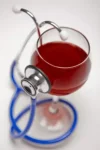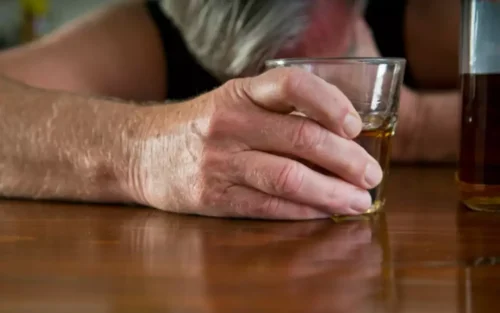Anxiety and Alcohol Use Disorders: Comorbidity and Treatment Considerations Alcohol Research: Current Reviews
However, the effects that make benzodiazepines useful in these diagnoses are the same effects many experience with alcohol. A 2017 study found that, when researchers measured anxiety clinically, levels of anxiety can drinking alcohol cause panic attacks were higher in those with AUD than those without when they faced stress. According to a 2017 review that looked at 63 studies, reducing alcohol intake resulted in improvements in both depression and anxiety.
- It can be easy to dismiss occasional feelings of nervousness, stress, fear or general anxiety as just a part of the human condition.
- Drinking excessive amounts of alcohol can also have noticeable physical and mental consequences.
- According to some animal research, those who drink alcohol in their youth may be more prone to anxiety in adulthood, which might suggest a causal relationship.
- In this followup study, although the sons of alcoholics were three times more likely to develop alcohol abuse or dependence, they showed no higher rates of major depressive disorders or major anxiety disorders during the followup period.
- Among people with co-occurring AUD and psychiatric disorders, AUD remains undertreated, leading to poorer control of psychiatric symptoms and worse outcomes.
- Even simply thinking about attending the gathering might cause them anticipatory anxiety.
The Common-Factor Model

Twelve-step facilitation was added based on published empirical support (e.g., Project MATCH Research Group 1997, 1998; McKellar et al. 2003; Tonigan 2009). It is important to remember, however, that certain studies show some overlap among depressive, anxiety, and alcoholic disorders in the same family. Many of these studies are mentioned in the Schuckit and Hesselbrock review, including the work by Merikangas and colleagues (1985).
- In a seminal review, Schuckit and Hesselbrock (1994) noted that the frequency of alcoholism among anxiety patients was not markedly higher than in the general population, contrary to what would be predicted by the self-medication hypothesis.
- Some studies on mice show that alcohol-related anxiety can last anywhere from 4 to 14 hours.
- Neuroscientific research implicates overlapping neurobiological systems and psychological processes in promoting the rise of negative affect and alcohol misuse.
- Support for the role of genetic factors as a cause for the co-presence of these disorders indirectly has been provided by family and twin studies (e.g., Merikangas et al. 1994, 1996; Tambs et al. 1997).
- Do you ever notice yourself feeling a little out of sorts the day after you drink?
Online therapy options
In a seminal review, Schuckit and Hesselbrock (1994) noted that the frequency of alcoholism among anxiety patients was not markedly higher than in the general population, contrary to what would be predicted by the self-medication hypothesis. In contrast, some studies have found greatly elevated rates of anxiety disorders in samples of individuals with alcohol problems (e.g., Kushner et al. 1990). For investigators seeking to bridge the multiple disciplines included in this review, the findings concerning stress responses pose challenges and opportunities for future research. For example, can individuals https://ecosoberhouse.com/article/how-to-stop-alcohol-shakes-tremors/ with AUD be distinguished meaningfully based on objective stress reactivity and regulation indicators, and do subjective anxiety symptoms mark or moderate this distinction? For augmenting treatment for AUD, would targeting biological stress reactivity (e.g., hypothalamic pituitary adrenal activation) be more promising than targeting anxiety disorders? Among people who have problems with alcohol, do those with versus those without co-occurring anxiety disorder react differently to protracted abstinence and withdrawal in terms of severity and persistence of dysregulation of the stress response?
How to distinguish between the mental health conditions of panic and anxiety.
Your health care provider or mental health provider will ask additional questions based on your responses, symptoms and needs. Preparing and anticipating questions will help you make the most of your appointment time. Residential treatment programs typically include licensed alcohol and drug counselors, social workers, nurses, doctors, and others with expertise and experience in treating alcohol use disorder.
How Are Anxiety Disorders and Alcohol Use Disorders Linked?

Impact on your health
The Risks of Using Alcohol to Relieve Anxiety
